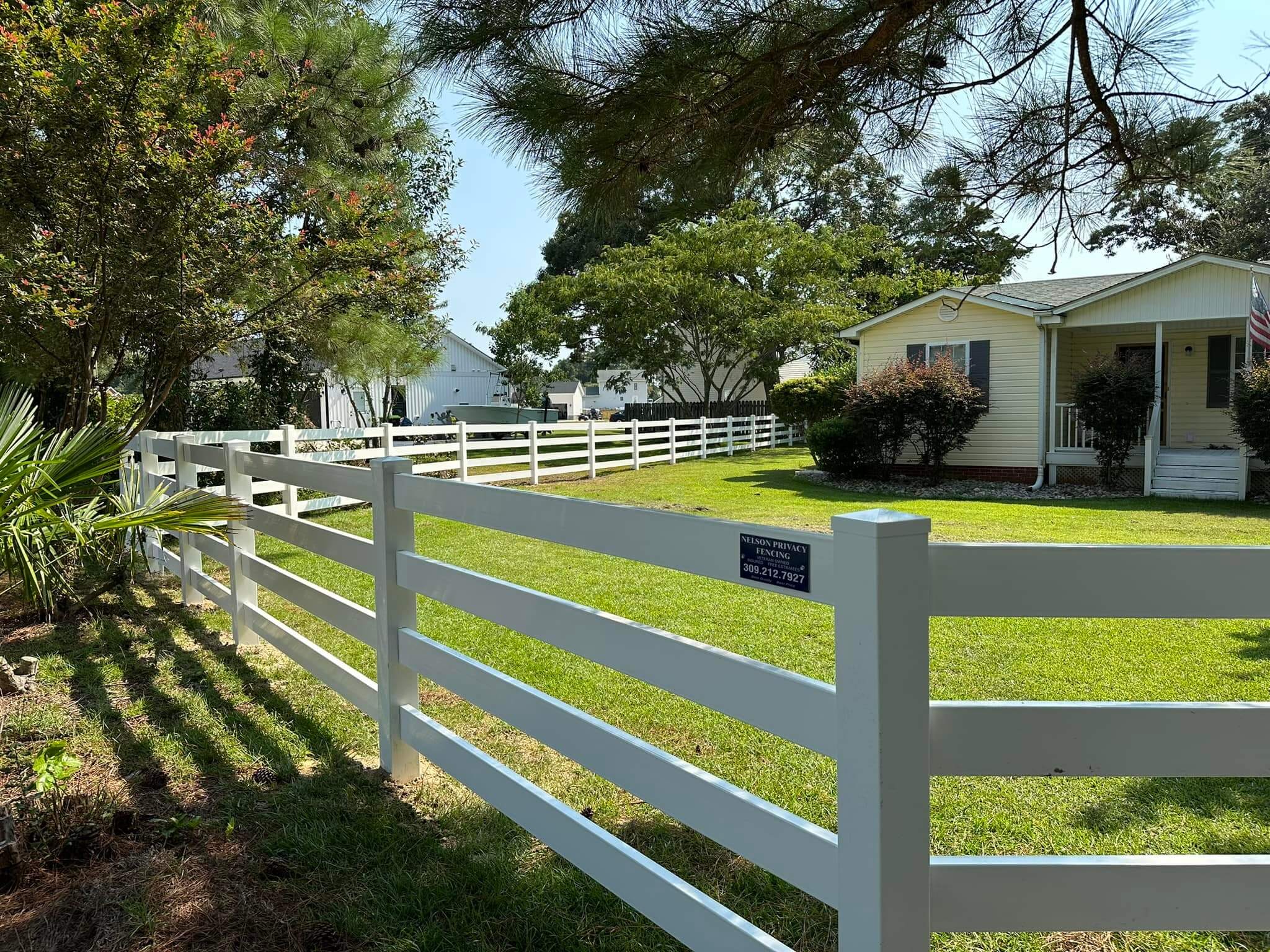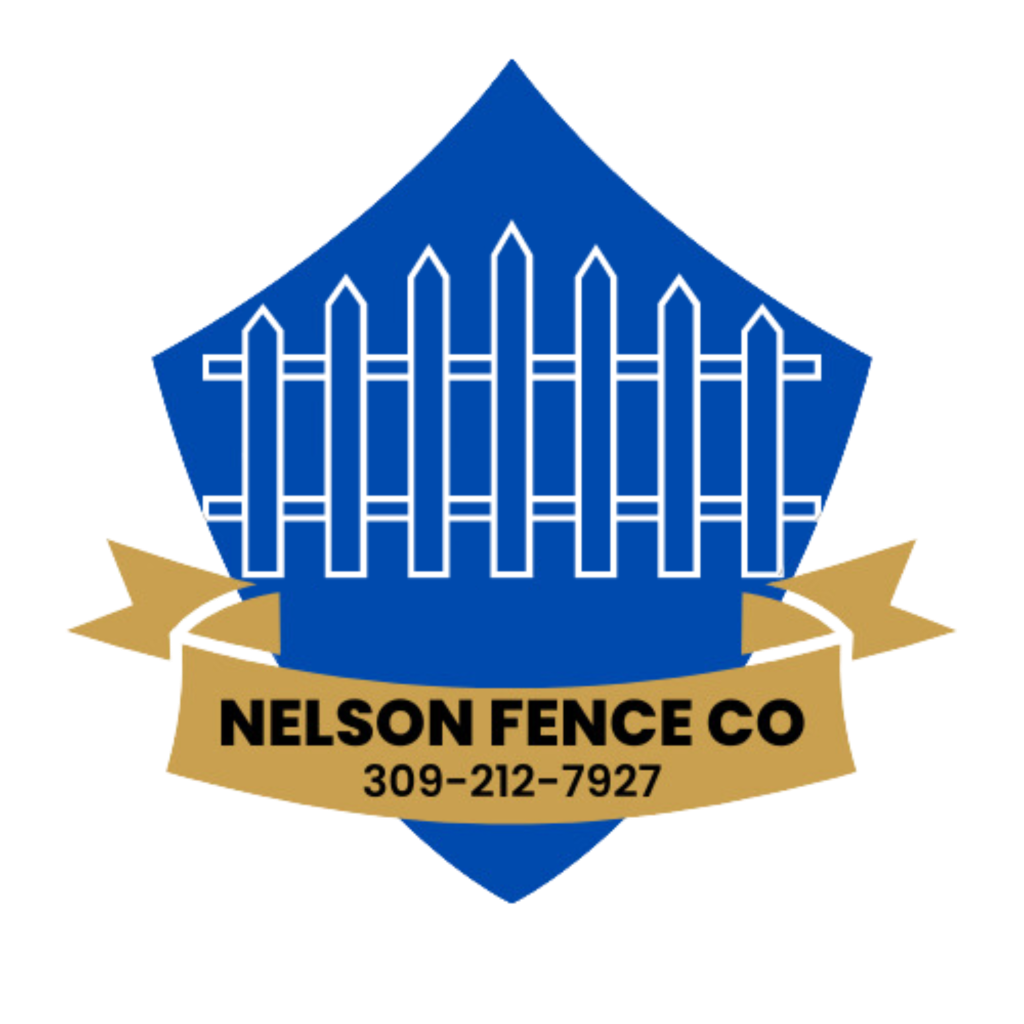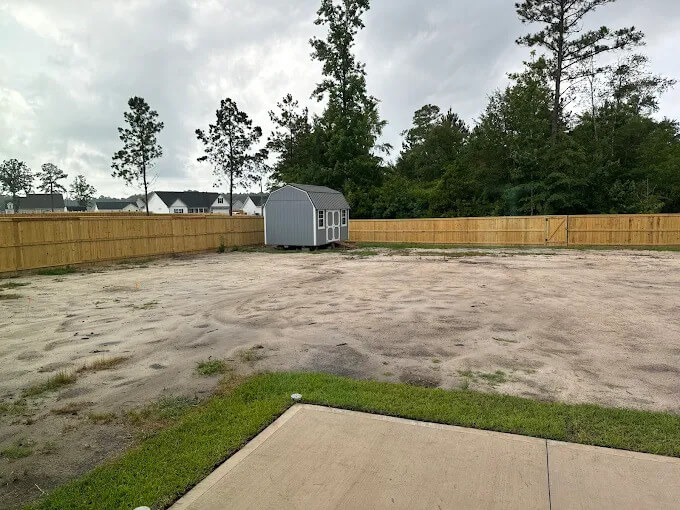Installing a fence gate is one of the most essential elements of any fence project. It provides access, defines your property boundary, adds to the overall appearance of your yard, and improves security for your home and family. Beyond that, it impacts safety, customization, and the overall outcome of your fencing project. When it comes to gate installation, homeowners typically face a significant decision: whether to take the DIY route or hire a professional fence contractor. Each option comes with its own set of instructions and specific considerations, which impact the reliability of how well everything functions in the long run.
At Nelson Fence Company, we’ve helped countless homeowners in Hubert, Emerald Isle, Jacksonville, Richlands, and Sneads Ferry complete their fence installations with the right balance of quality, budget, and timeline. Whether you’re considering DIY fence gate installation or opting to hire professionals, this guide explores the pros, cons, and critical factors to help you make the right choice for your specific needs.
Understanding the Fence Gate Installation Process
Fence gate installation is more than just hanging a swinging panel between two fence posts. It involves detailed planning, accurate measurements, a solid understanding of materials and tools, and an awareness of potential challenges such as tree roots, slopes, utilities, and soil types. There are many ways the installation can go wrong without proper preparation, and the difference between a well-installed gate and a faulty one often comes down to experience. Fence installers and fence builders understand how to maximize space, manage obstacles, and ensure everything fits securely in place. While many contractors may offer competitive price points, it’s the precision and reliability that sets the pros apart—especially when dealing with lots that have complex layouts or boundaries.
From the outside, the process may look simple—but in reality, it requires experience, attention to detail, and problem-solving skills. There are several important reasons why professional installation often yields better results, including fewer disruptions during the process and long-term cost savings. While the DIY route may seem appealing, homeowners must carefully consider their skill level and comfort with hands-on work before taking on this type of fencing project on their own. Understanding the actual advantages of professional expertise can make all the difference in the outcome.
Budget, Cost, and Investment Considerations
Budget is often the first concern when planning any home improvement project. Many homeowners initially believe that going the DIY route will save them money. While it’s true that DIY fence installation may cost less upfront, there are hidden costs and long-term expenses to consider.
Doing it yourself means purchasing or renting tools, sourcing fencing materials, and potentially incurring additional costs to correct mistakes or purchase replacement parts. It also requires investing time—often a lot more time than anticipated—especially if you run into unexpected challenges during the project.
On the other hand, hiring professionals do increase your initial costs because you’re paying for labor, but you’re also paying for their expertise, equipment, and efficiency. Plus, when a job is done right the first time, it minimizes the chances of future repairs, saving you money over the life of the fence gate.
Choosing whether to spend more now or potentially spend more later is a key part of this decision. Think of it not only as a short-term cost but as a long-term investment in your property.
Skill Level, Tools, and Experience Required
If you’re considering the DIY route, ask yourself if you have the right tools and skills to complete the job. Installing a fence gate requires precision with measurements, digging accurate post holes, mixing and pouring concrete, and ensuring the gate is level and swings properly.
In most cases, you’ll need power tools, post-hole diggers, levels, drills, fasteners, hinges, and sometimes even specialized equipment, depending on the type of fence and terrain. You’ll also need to work with various fencing materials, including wood, vinyl, and metal, which differ in terms of weight, flexibility, and installation requirements.
If you’re new to DIY projects, there’s a significant learning curve. It’s not just about the physical work—it’s also about understanding regulations, knowing how to handle obstacles in the yard, such as tree roots or compacted soil, and ensuring that your installation complies with local building codes.
By contrast, a professional fence contractor brings years of experience, access to the best tools, and knowledge of proper techniques. Professionals know how to avoid common mistakes, minimize installation time, and effectively handle any challenges that arise during the process.
Timeline, Efficiency, and Labor Considerations
Time is another crucial factor in the decision between DIY and hiring professionals. Installing a gate yourself—especially for the first time—can take much longer than expected. Between planning, preparation, digging, setting posts, hanging the gate, and cleanup, the project can stretch across multiple weekends.
Unpredictable factors, such as rain or extreme temperatures, can cause delays, and working solo or relying on occasional help from family or friends can further slow down the process. DIY projects often require more breaks, rework, and troubleshooting, which can drain both your energy and enthusiasm.
Professionals, however, work as a team with a proven process and set timeline. They know how to coordinate tasks efficiently, avoid downtime, and adapt quickly when problems arise. Their goal is to finish the project correctly and on schedule—saving you time and reducing the overall disruption to your routine.
If efficiency, speed, and minimal stress are priorities for your household, hiring a fence installer might be the right call.
Materials, Fence Types, and Gate Design Choices
The choice of materials plays a significant role in how your fence gate performs over time. Homeowners must decide between wood, vinyl, metal, or composite materials, each with its benefits and drawbacks.
A wood fence gate offers natural beauty and classic appeal. It’s highly customizable and can match almost any yard design. However, wood requires ongoing upkeep, such as staining or painting, and is vulnerable to moisture, pests, and decay over time.
Vinyl fence gates, on the other hand, are low-maintenance and long-lasting. They resist moisture, insects, and warping, making them a solid choice in humid environments like Norfolk or Chesapeake. Metal gates offer strength and security, with a sleek appearance that suits modern designs. However, they may require protective coatings and can be more challenging to install without professional assistance.
DIYers are often limited to pre-packaged kits or simple designs due to the tools and resources available to them. Professionals, however, can offer fully customized solutions based on your preferences, property layout, and long-term goals. They help homeowners choose the right type of gate and fencing materials for their specific area and soil type—factors that significantly affect performance and longevity.
Permits, Regulations, and Boundary Concerns
Many homeowners are surprised to learn that fence installation—especially gates—can require permits and adherence to building codes. Before digging or installing anything, you must verify local fencing regulations, property lines, and easement restrictions.
Failure to do so could result in fines, forced removals, or legal disputes with neighbors. DIYers must handle all of this research and paperwork themselves, as well as contact utility companies to mark underground lines before digging. It’s a step that’s often skipped, and the consequences can be severe.
When you hire a professional fence contractor, all these details are handled for you. Professionals ensure that your gate and fence are compliant with regulations, accurately placed, and legally installed. They’ll help you avoid costly mistakes by managing permits and planning the project with your property’s legal boundaries in mind.

Fence Gate Maintenance, Repairs, and Longevity
Once your gate is installed, how long will it last? And how much effort will it take to maintain?
DIY installations, especially if done without the right tools or knowledge, can result in premature wear and tear. Gates may sag, hardware may rust, or posts may shift due to poor alignment or unstable footing. Fixing these issues later can involve additional labor, materials, and often professional help—negating any initial savings.
Professional installers not only build the gate correctly from the start but also use materials and techniques designed for durability. From galvanized hardware to reinforced posts and water-resistant sealants, pros know how to extend the life of your investment.
Additionally, many professional services come with warranties or ongoing maintenance options, offering peace of mind long after installation.
Regional Considerations for Hubert, Emerald Isle, and Jacksonville
In Onslow County, unique environmental and regulatory factors come into play. The coastal setting of Emerald Isle means exposure to salt air, high humidity, and occasional flooding. Hubert and Jacksonville often experience heavy rain, shifting soil, and hot summers—all of which can affect the durability and alignment of fence gates over time.
Professional fence companies, such as Nelson Fence Company, understand the local terrain, climate, and building codes. We understand which materials perform best in various regions and how to design fences and gates that can withstand these regional conditions without compromising safety, reliability, or longevity.
DIYers unfamiliar with these challenges may end up with a gate that shifts, warps or fails to provide adequate security—leading to costly repairs or full replacements down the line.
Final Factors to Consider in Your Decision
When making your final decision, take a moment to reflect on what matters most to you in this project.
Are you looking to save money and enjoy the satisfaction of building something with your own hands? Or do you want a stress-free experience with guaranteed results, long-term value, and professional support?
The correct answer depends on your goals, your experience, and your available time. There is no one-size-fits-all approach—but there is a right choice for you.
Remember to consider not only the installation process but also the ongoing maintenance, potential for repairs, and the value your fence gate will add to your home over time.
Nelson Fence Company’s Advice for a Lasting Fence Gate
At Nelson Fence Company, we understand that every homeowner has different preferences, timelines, and budgets. That’s why we support our clients in making informed decisions—whether you’re ready to take on a DIY project or prefer the precision and convenience of professional installation.
We’ve seen many homeowners attempt DIY fence installations only to call us later for repairs or replacements due to poor installation, missing permits, or misaligned posts. We’re here to help you avoid those headaches and get it done right the first time.
Our team proudly serves Hubert, Emerald Isle, Jacksonville, Richlands, Sneads Ferry, and surrounding areas, offering full-service fence installation, expert guidance, and reliable fence repair and maintenance. With years of experience and a reputation for quality craftsmanship, we’re the local choice homeowners trust for all types of fencing projects.
Let’s Build Something That Lasts
Ready to get started? Whether you have questions, want to compare quotes, or are ready to plan your next fence project, Nelson Fence Company is here to help. Contact us today to request a quote and take the first step toward a secure, beautiful, and expertly installed fence gate.
Frequently Asked Questions
1. What is the average lifespan of a professionally installed fence gate?
A professionally installed fence gate can last anywhere from 15 to 25 years or more, depending on the materials used, weather exposure, and ongoing maintenance. Vinyl and metal gates often last longer than untreated wood.
2. Can Nelson Fence Company install custom-sized gates for non-standard openings?
Yes, we specialize in customized gate solutions to fit unique property layouts, unusual openings, and specific homeowner needs. Our team designs gates for both aesthetics and function.
3. Will installing a gate affect my existing fence or property boundary?
Proper gate installation should integrate seamlessly with your current fence and respect your legal property lines. Our team ensures accurate placement and verifies all boundary regulations before commencing work.
4. How long does a typical professional gate installation take?
Most professional gate installations are completed within one to two days, depending on weather conditions, gate type, terrain, and the existing fence conditions. Larger or custom gates may take slightly longer to manufacture.
5. Do I need to be present during the installation?
It’s helpful to be available at the start of the project to confirm placement and design preferences. After that, our team can handle the rest, keeping you updated throughout the process.
6. Can I install a gate myself if Nelson Fence Company installs the rest of the fence?
While it’s technically possible, we advise against it. Gates require precise alignment and anchoring—any mistakes can compromise the entire fencing system. For optimal results, we recommend allowing us to handle the entire installation.
7. What kind of maintenance is required after my gate is installed?
Maintenance varies by material. Wood gates require occasional sealing or staining, while vinyl gates typically require simple cleaning. Metal gates may need rust protection. We provide guidance based on your chosen material.
8. Are automatic or locking gates available?
Yes, we offer a range of gate upgrades, including automatic openers, keypads, latches, and locking systems for added security and convenience.
9. What if my yard has uneven terrain or slopes—can a gate still be installed?
Absolutely. We specialize in adapting gate installations for challenging terrain, including sloped or rocky ground. Proper planning and adjustment techniques ensure a stable, functional gate.
10. Does Nelson Fence Company offer financing or payment plans?
We understand that fence installation is an investment. Contact us to learn more about available payment options, financing programs, or phased project planning to meet your budget.

